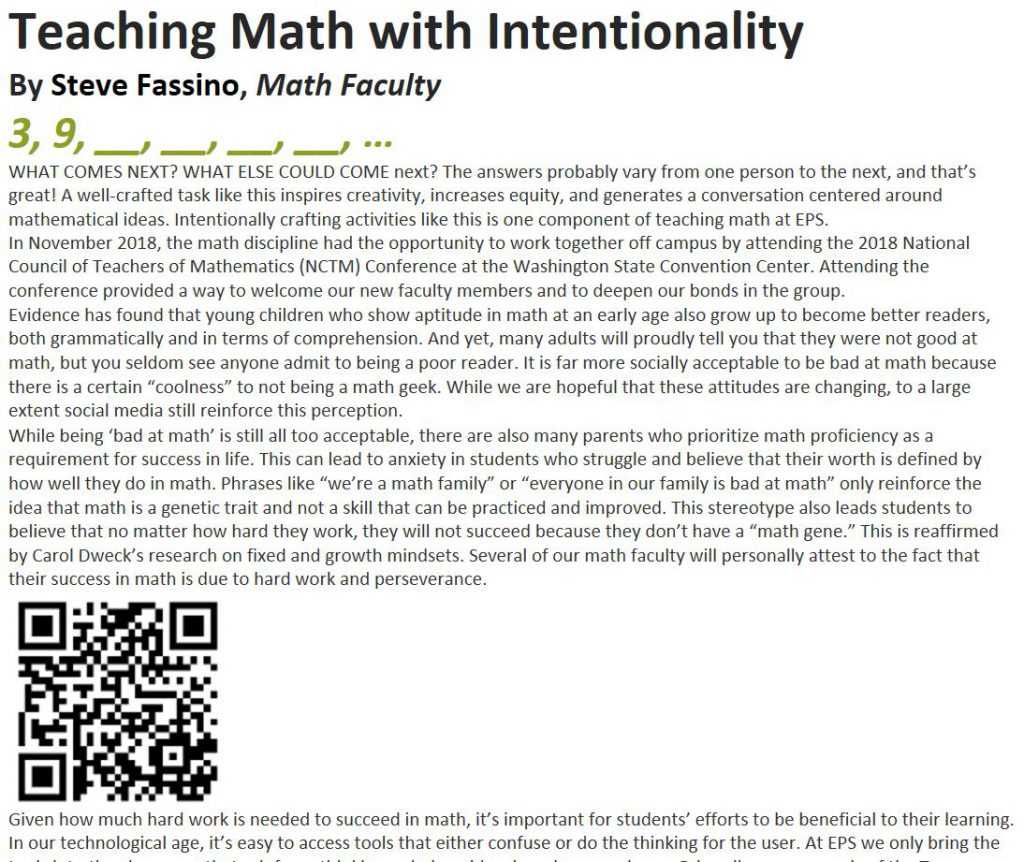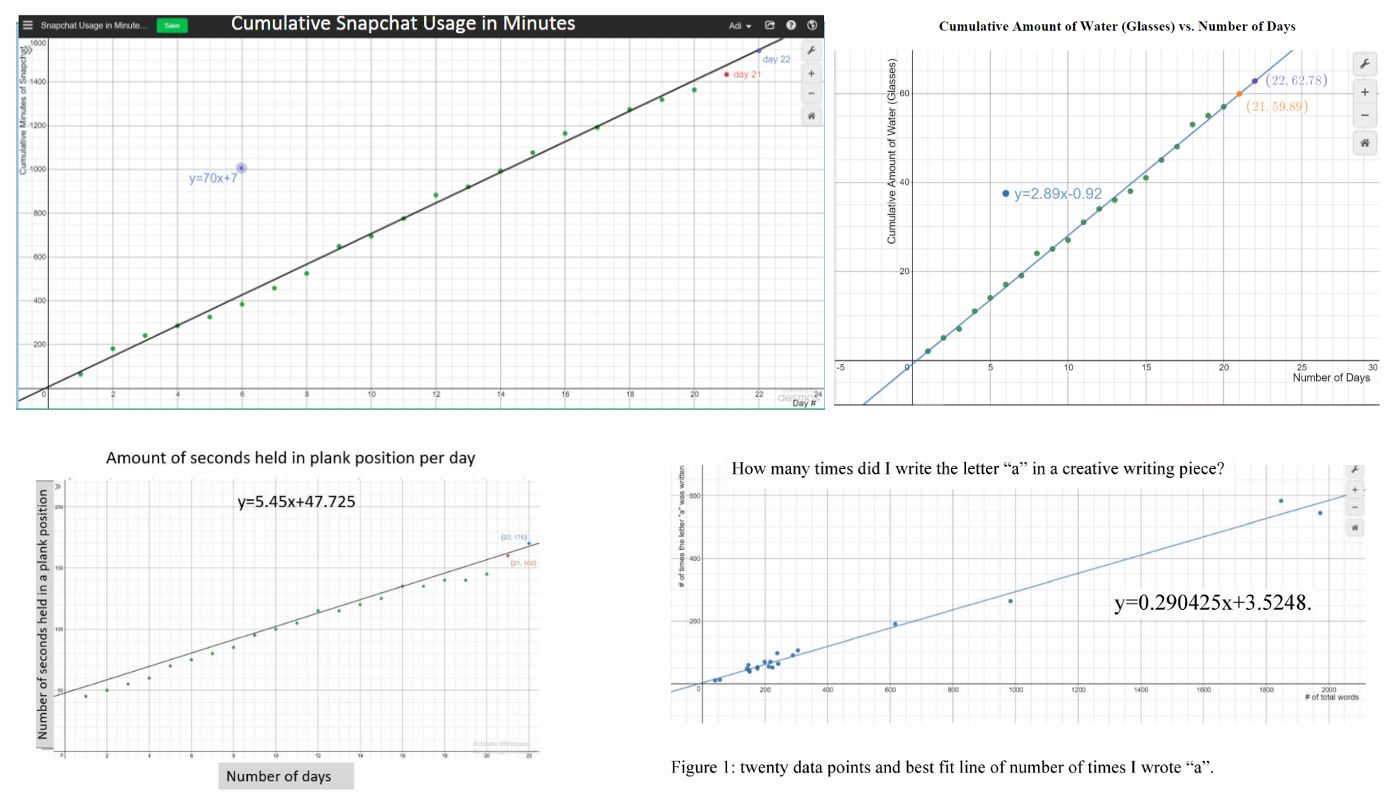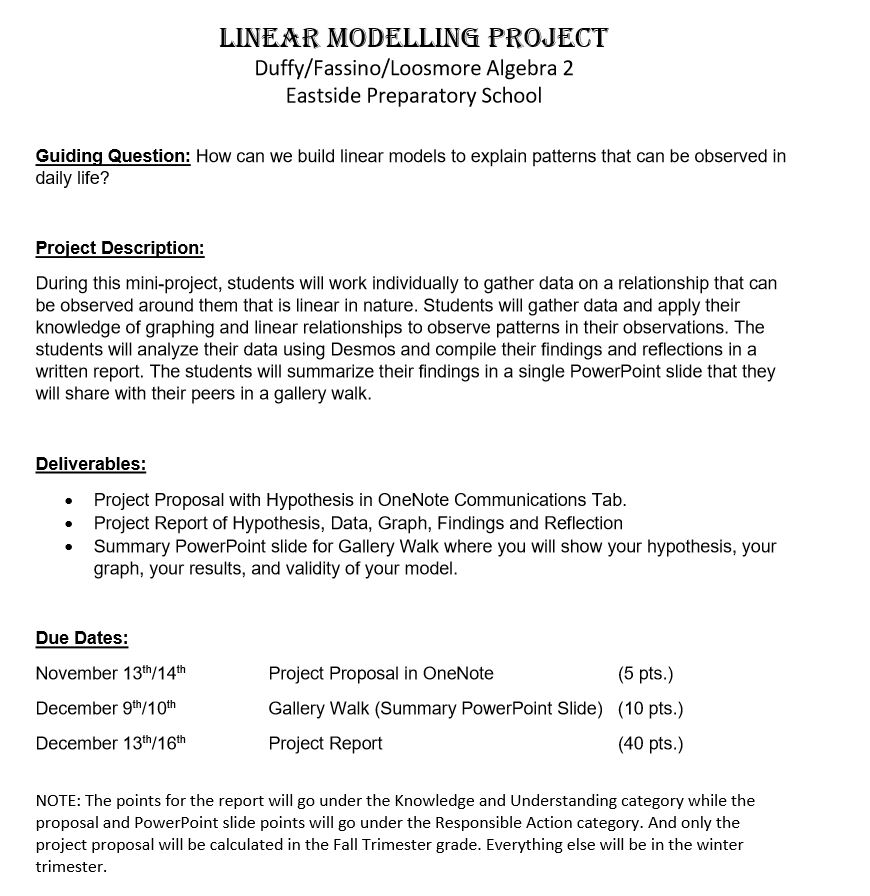(1) designs and implements courses that reflect teacher mastery of their academic discipline and its teaching methodologies
(2) designs and implements courses framed by the school’s pedagogical tenets – inquiry, experience, and integration
(3) collaboratively designs and evolves course curricula that are reflective of their academic discipline’s philosophy and derivative of the school’s overarching philosophy
(4) updates course content to reflect the contemporary world
(1) designs and implements courses that reflect teacher mastery of their academic discipline and its teaching methodologies
(9/2017-5/2019) By the spring of 2016, we had a large cohort of juniors who were finishing Advanced Calculus and needed a math course their senior year. Seeing a need and being willing to challenge myself, I proposed the Advanced Topics course achieve the following:
This course broadens students’ definition of math and exposes them to further math topics they would expect to see in college. By studying a breadth of topics students will understand the connectedness and internalize what is at the core of all mathematics- reasoning and creativity. Specific topics of study will include: set theory, graph theory, number theory, game theory, and topology. To lay down the foundation for college experiences, the topics of differential equations and linear algebra will be studied as well.
In essence, this course was an introduction to more than 5 different math courses one could take in college.
I had never taught any of these subjects before. And frankly there were topics I hadn’t learned about yet. But I wanted our students to have the opportunity to see other branches of math besides those in the algebra/calculus vein and I wanted to know more. Thankfully the math discipline and administration agreed with this thinking and the Advanced Topics course ran with 15 students in the 2017-2018 school year. Below is how I approached teaching each of the various units:
| Unit | Teaching Methods |
| Differential Equations | Similar to students’ previous experiences with Calculus. Meaning, an emphasis on direct instruction and a lot of I do, we do, you do. Focus on gelling the class together as a community of learners. |
| Graph Theory | Very different thinking but similar instructional methods to the Differential Equations Unit. |
| Linear Algebra | Inquiry based teaching starting with the Axioms of a Real Vector Space. What this looked like was a lot of active participation, debating, conjecturing, creating examples and counter examples. These inquiry-based classes were paired with videos to be watched outside of class that aimed at making the abstractness of the concepts more intuitive. Used more traditional direct instruction methods when solving for eigenvalues. |
| Intro to Proofs | Leaned on a text resource to start that students read outside of class. In class we focused on exercises and agreeing on conditions that make a good proof. |
| Number Theory | Inquiry based again starting with just 4 definitions- natural numbers, integers, division, and congruence modulo n. Built up the rest of subject proving 25+ theorems- including divisibility rules. Again, a large emphasis on active participating/debating/questioning during class. |
| Chaos/Infinity | Large group discussions/debates about infinite sets and paradoxes. Also, worked on computer implementation as we built a bifurcation diagram in Excel. |
| Game Theory | Completed simulations and played games during class. Supplemented with direct instruction lectures. |
(2) designs and implements courses framed by the school’s pedagogical tenets – inquiry, experience, and integration
(2/2019) Included is an Inspire article I wrote with the help of Adrienne and Lurline summarizing the Math discipline’s experience at the National Council of Teachers of Mathematics Regional conference. The article compares the best math practices shared at the conference to our current math teaching practices.
Inspire Article

(3) collaboratively designs and evolves course curricula that are reflective of their academic discipline’s philosophy and derivative of the school’s overarching philosophy
(9/2014-5/2020) This is a reflection of major changes to my Algebra 2 co-collaborator(s) and the curriculum over time. New structure added. Continued structure from previous year. Removed structure.

(4) updates course content to reflect the contemporary world
(11/2019) Here are the current Algebra 2 Linear Modelling Project Expectations. This project started the year I co-taught Algebra 2 with Ted. Below you can see examples of student work where they make observations from their daily life and find an algebraic function to represent it. Along with the posting of the assignement.

